Big hearted and high performing
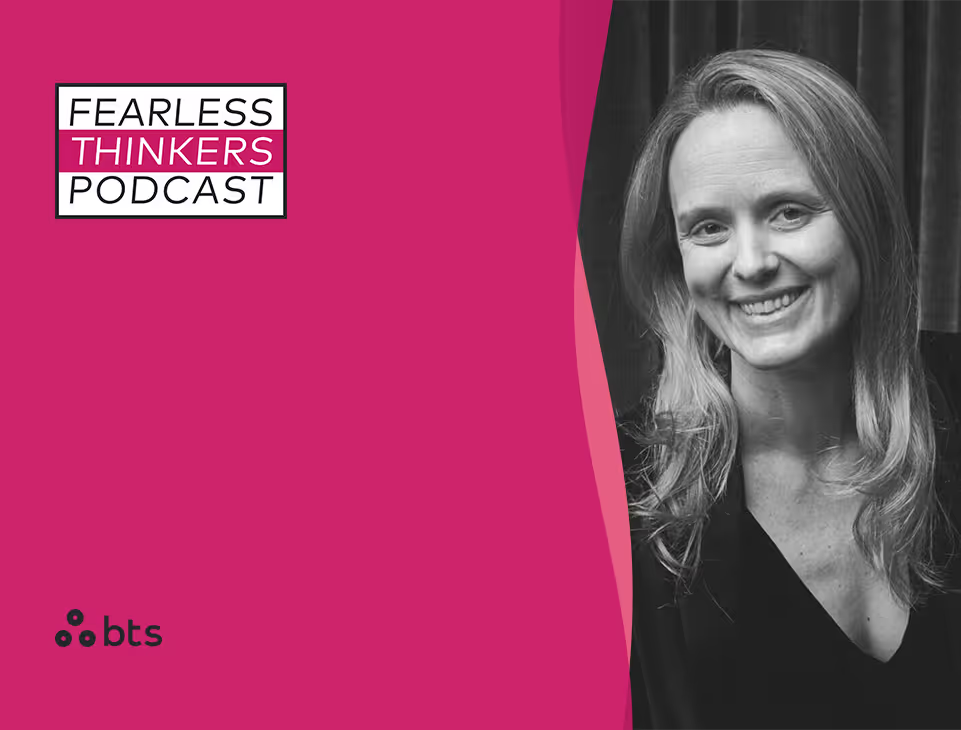
In the second half of our chat with Jessica Skon, President & CEO of BTS Group, learn what she means by a big hearted and high performing culture, both at BTS and in today's business environment.
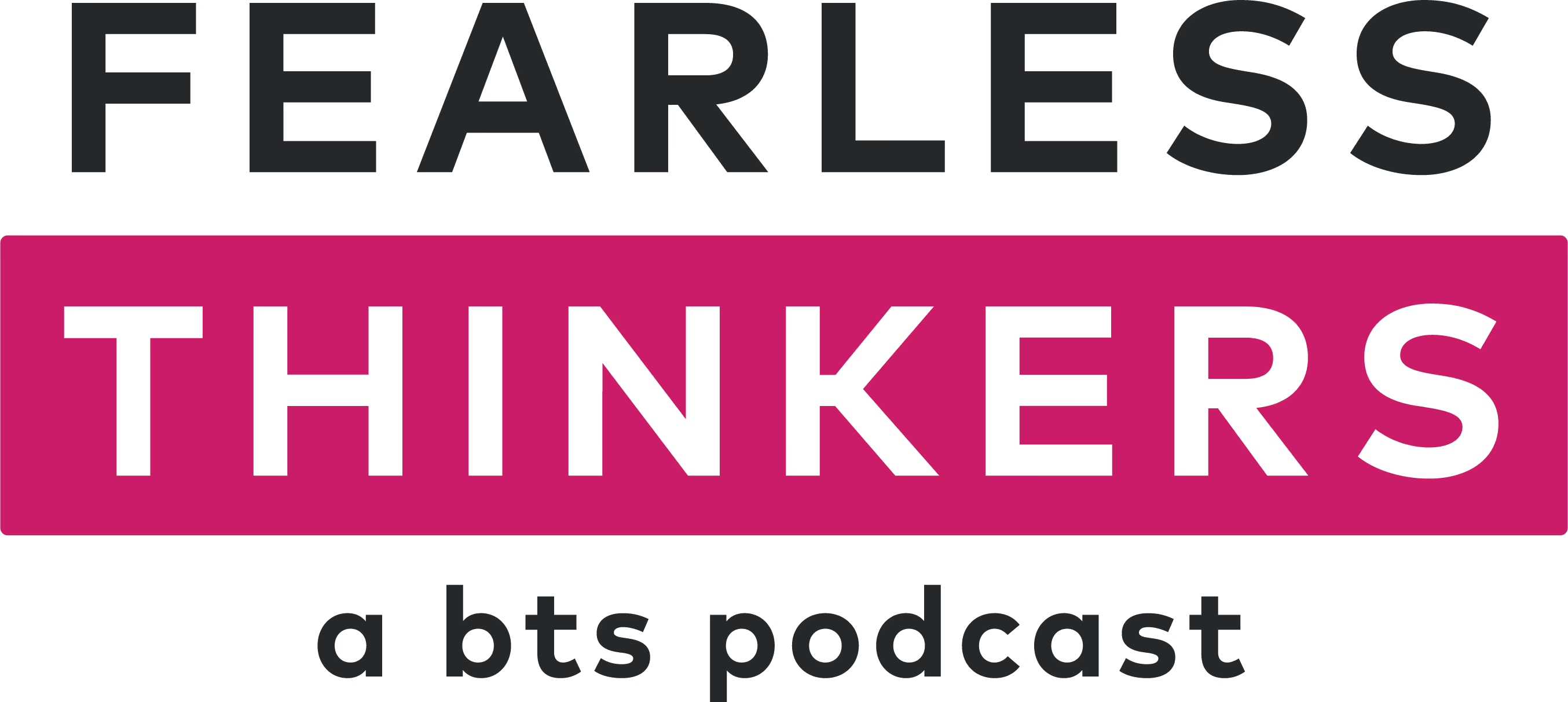
Most of us want to lead in a way that matters; to lift others up and build something people want to be part of.But too often, we’re socialized (explicitly or not) to lead a certain way: play it safe, stick to what’s proven, and avoid the questions that really need asking.
This podcast is about the people and ideas changing that story. We call them fearless thinkers.
Our guests are boundary-pushers, system challengers, and curious minds who look at today’s challenges and ask, “What if there is a better way?”If that’s the energy you’re looking for, you’ve come to the right place.
Masami: Welcome back to Fearless Thinkers, the BTS Podcast. I'm Masami Cookson, and your host today is Rick Cheatham. This episode is part two of our conversation with Jessica Skon, the new president and CEO of BTS Group. Today, Rick and Jessica discussed BTS’s big hearted and high performing culture. If you didn't catch part one on the history of BTS and Jessica's path, you can find it on your preferred streaming platform. Let's get into it.
Rick: Now, I'd actually like to dig a little deeper into the words big hearted and high performing… Could you dig a little bit deeper into what that looks like as leaders or looking across the business in general? How does a big hearted and high performing business function? How do you know if you have it or don't?
Jess: Sure. It forces us to look inwardly at the BTS culture first, 'cause that's where the language came from… It was 2016. North America had just single digit growth for the last four or five years, which — if you're trying to run a high-performing firm and give your people long term careers — you have to grow faster than that for that to happen. And so, what the leadership team in North America and I were reflecting on in terms of “What do we wanna protect,” and then, “What do we need to do differently…”One of the things that was clear, which we all loved, was this language that was surfacing around “We're a big hearted company.” And I think what we meant by that was we have fun with each other; we care for each other; we have each other's backs; we work hard; we play hard. We didn't wanna lose that. It felt more like a family than it did something else. And at the same time, we're like, “Okay, but we have to have that and be high performing. And what do we mean by high performing? Well, double-digit growth, quarter over quarter, probably a good start, right, like consecutive consistent double-digit quarter and quarter growth.So, and then we went through, “What do we need to change to make that happen?” There was a whole series of things but that's what we mean by being bighearted and high performing, is — you get [both] superior shareholder returns and your people feel cared for, they feel more like they're part of a family, but they themselves are also becoming more and more high performing over time. Right, so it's not soft, but it's the mix of the two. And I will say this just on the shareholder returns part, that — since BTS went public in 2001 — our average shareholder return is 18%, which is the equivalent of Buffet. So, I would say we could also say that we're high performing from a shareholder returning perspective.And now, back to your question of unpacking this a little bit more around, “What does it look and feel like in action?” Or, the artifacts that you would see or feel if you have it… I think this is a journey that we'll continue to hone and understand and put words around. And I think we've been — I've personally been — influenced by some amazing leaders who lead this way and have institutionalized this: Herb Kelleher, founder of Southwest Airlines, was a good friend. I've worked with some amazing four-star generals; I think there's pockets of our military who do this beautifully. We've studied high performing environments from sports teams and symphonies and all of that. So, all of this is coming together.But going into your question — I mentioned this, but I'll say it again, and I have a few things. One is [that] people should feel cared for, and that is gonna feel a little different based on each person. But when they think about their relationship with their direct leader, their peers around them, and the firm, they should feel like people have their backs, right? They should feel like someone knows more about them than their performance, [that] they know about their personal life a bit; and [that] they know what's important to them, that they have friends at work that show up for them when they have issues, right, outside of the job and inside of the job. And I think this is an important one, and it's the leader's role: this culture would start from the top. It's, “What happens to that person when something goes wrong?” In our world, you lose a deal; or you get a no on something you are accounting for; we have a quality issue or an upset customer. What's their experience, right? If you have a culture where the person feels cared for, there is no shame in that moment. That is not the time to pile on, right, and make them feel even worse, or make them feel small. When there is an issue and they come to you as their leader, I believe the only way to respond is, "Thank you so much for telling me. Let's work on this." And that leader becomes right next to them, co-owns the problem, is the thought partner, [and] pulls in resources to support it, but has this vibe with them of, “I'm here with you, we're the same team.” Right?And I think the other thing that's a part of that is to realize and believe that in the low moments is when the most learning is possible. I believe that. I think the high moments build confidence, I think the low moments build intense learning, right, and wisdom that propels you forward into a much stronger position. You want to come out of a downturn a stronger company; you want to come out of a bad moment a much stronger person, right, and team.And so, I think that's a key part of helping people feel cared for. I think another one is making sure you give really clear ownership and accountability. And I've learned from our founder how to do this well. We've characterized one of Henrik's strengths as a high value for him is freedom. And what he taught me to do with my direct reports is to say, “Okay, you got this, right? Like, either you own an office, or you own the revenue, or you own a region so you own a whole full PNL, or you own the project,” whatever it might be. And then to say to them, “Look, if I don't hear from you, I'm assuming everything's great, right? You're gonna hit your quarterly numbers or the client's really happy, or your team is super engaged.”But what I do wanna hear from you on is the following three things… If it's a head of office, I would say, “I wanna know as soon as you think you might not hit your quarterly number. I wanna know if you think some of our best talent is at risk of leaving, and I wanna know if you think we're at risk of a quality issue with a customer.” As long as you tell me those things, then I'll be their partner… But giving somebody clear ownership and accountability and setting it up that way, I think gives a lot of trust.And then again, it's all about how you help them when the times get tough. I think the company owes leaders real-time data, right? And reports and dashboards that can make them be as high performing and insightful as possible, and that's an act of service to them. So, and I think the world is getting to an amazing potential with enterprise AI and the amount of data and real time dashboards giving to people, but… Even without the most advanced AI, I think the basics should be provided, right? So that people can be thinking about continuous improvement and continuously raising the bar on performance for themselves and for their team. Data kind of keeps everyone honest, right, and it takes the hyperbole and the drama out of the look at the current state.
Rick: And I think it's one thing our clients experience when they engage with us historically. And until we really started to break it down over the last few years, I think we mainly looked at it as making sure we're hiring the right people and acting in service to them versus control. And I think so many times, like you've said, when I personally have made huge mistakes and the conversation was more around, “Okay, so what are we gonna do to solve this?” Not, “You're never gonna do this again, didn't you think better, didn't you know better,” kind of thing.I do want to dig deeper with you though, because — well, I think it would be worthwhile, 'cause I was involved in this a bit, but I think you were deeper on the inside of it since it is so recent, and actually since Henrik was just featured in a blog post on the World Economic Forum talking about it — share quickly how this came to life as we were looking at the situation. Our business was in where the majority of our client experiences or how the majority of our client's experience happen, and the decisions that were made to basically help us come out of the pandemic, stronger than ever, versus potentially beaten down and hollered out.
Jess: Yeah, I think February, March of 2020 is a great example of big hearted and high performing in action. We started to realize what the global impact could be on our business when we saw COVID hit both South Korea and Italy, I think in the third week of February or sometime around there. And that's when our founder realized, “Oh my God, this is gonna go global.” And 60 to 70% of our revenue is typically being done in person with our clients. So, we spent about a week looking at cash scenarios and making a five-point plan. And plan number one was to build up the biggest cash war chest possible, so he and our CFOs quickly took out as much debt line of credit as they could. We made a plan just in case that we would be unprofitable, let's say, for a couple years. We didn't need it. We ended up being profitable even in the first year. And we only shrunk by about 20% versus a 60 to 70; but still, building up a cash war chest and having more than your competitors is critical in a macroeconomic decline like that. That was step number one.Step number two was the decision to have no economic layoffs, which is consistent with 30+ years at BTS. It's hard to be both bighearted and high performing and lay off people at a whim. Number three, we have always through every economic downturn taken the long-term view, always. And we watched our competitors both traditional consulting firms, and HR consulting firms, by May [2020] do big layoffs, and then already in the summer, try to hire them back. That is not BTS; we have never done that. We hold our team, we keep them in the downturn, and our belief is you can use that time and space to upskill, reskill, become more innovative and come out a much, much stronger company. And you can also hire, 'cause there's typically great talent available in those markets. So, we did those two things.Number three is we held the belief that all of our services will be done virtually, immediately, tomorrow. There was no space for, “Well, maybe this one will work and that one won't.” It was, “In order to best serve our clients, let's bring them the confidence and the capabilities to do what their people need right now in those virtual environment.” And what's so cool about the BTS culture — and this is a benefit of everybody feeling cared for, and free to be themselves, and being free to be innovative with no backlash — if you innovate the wrong thing, right, or whatever, is a global Slack channel was created instantly from one of our consultants out of Australia. I think it was "Keep Calm and Corona On" or something, but immediately globally, everyone was giving each other tips.So, across the broad portfolio of services, “Try this, try this, try that; here's what's happening on Zoom versus MS Teams, here's our compatibility on our software platforms with different sims.” And it was just 1100 people helping each other as fast as possible. And because BTSers are brave, and I think it's the culture that makes them that way, they just went out and told clients, “I know you were gonna cancel your top 200 meeting in two days. We'll just do it virtually, and we got this,” right. Or, “Hey look, your people need now to know how to engage with their customers virtually, let's change our initiative and equip them to do that and we'll be ready in two weeks.” We didn't charge our customers any extra, we just converted immediately for free and with speed and tried to be as helpful as we could to them.
Rick: Well, Jess, I have to say as always, it's a pleasure just hanging out and reflecting; thinking, and planning to go do great, great things. So really, really appreciate the time and the thinking today.
Jess: Awesome! Thanks, Rick!
Rick: Pleasure, have a wonderful day.
Masami: If you'd like to stay up to date on the latest from the Fearless Thinkers Podcast, please subscribe. Links to all of the relevant content discussed in today's podcast are in the show notes or you can always reach us at BTS.com. Thanks again.
Related Content

At BTS, we’re constantly challenging ourselves to innovate at speed. And right now, it feels like we’re standing at the edge of something massive. The energy? Electric. The velocity? Unprecedented. For many of us, the current pace feels a lot like the early days of the pandemic: disorienting, high-stakes, and somehow exhilarating. And honestly—it should feel that way. Our teams have been tinkering with AI, specifically LLMs, for the past 2.5 years and it has really been in the last eight months that I can see the profound impact it is going to have for our clients, for our services and our operating model.
The opportunity isn’t about the technology. The world has it and it’s getting better by the minute. The issue is people and people’s readiness to adopt it and be re-tooled and re-skilled. It’s about leadership. AI is deeply personal, it’s surgical. In fact, that’s its genius. So, getting full scale adoption of AI, re-tooling everyone in the company by workflow, so that they can invent new services, unlock new customer value, unlock new levels of productivity, even use it for a better life, is the current race. The central question I’ve been wrestling with, alongside our clients and our own teams, is this:
What does AI actually mean for leadership and culture?
And the answer is clearer by the day: AI isn’t just a new toolset. It’s a new mindset. It demands that we rethink how we lead, how we learn, and how we build thriving organizations that can compete, adapt, and grow.
The productivity paradox revisited
Let’s start with the elephant in the boardroom. There’s been a lot of buzz around AI and its promises. But many leaders have quietly wondered: Will any of this actually move the needle? A year ago, we were asking the same thing. We had licenses. We had curiosity. We had early experiments. But the results were modest, a 1% productivity gain here or there. But by April, we were seeing:
- 30–80% productivity gains in software engineering
- 9–12% gains in consulting teams
- 5%-20% improvements in client success and operations
Just as importantly, the innovation unlock and creativity across our platforms due to vibe coding along with new simulation layers, is leading to new value streams for our clients. This isn’t theoretical. It’s not hype. It’s real. The difference? Adoption, ownership, and a shift in how we lead in order to energize the AI innovation within our teams. The challenge now isn’t whether AI creates value. It’s how to unlock and scale that value across teams, geographies, and business units—and do it fast.
Two Superpowers of the Agentic AI Era
In working with leaders across industries, I’ve come to believe in two superpowers (there are more as well) that will unlock the potential of this AI era: Jazz Leadership and a Simulation Culture.
1. Jazz Leadership
Forget the orchestra (although personally I am a big fan.) The successful team cultures that are innovating with AI feel more like jazz. In jazz, there’s no conductor. There’s no fixed sheet music. There are core bars and then musicians make up music on the spot based on each other’s creativity, building off of each other’s trials, riffs and mistakes, build something extraordinary together. This is how experimenting with AI today, in the flow of work, feels like.
For each activity across a workflow, how can new AI prompts, agents, and GPTs make it better, codify high performance, drive speed and quality simultaneously? How can we try something totally different and still get the job done? How might we re-invent how we work? That’s how high-performing teams operate in the AI era. The world is moving too fast for command-and-control leadership, a perfect sheet of music with one leader who is interpreting the sheet music and directing. What we need instead is improvisation, trust, shared authorship, courage and a playful spirit because there are just as many fails as breakthroughs.Jazz leadership is about creating the conditions where:
- Ideas can come from anywhere
- People see tinkering and testing as key to survival and AI failures mean your team is at the edge of what’s possible for your services and ways of working
- Leaders say, “I don’t have all the answers, but I’ll go first, with you”
- People feel “I’m behind relative to my peers in the company” and the company sees this as a good sign because the pace of learning with AI means higher chance of success in the new era
At BTS, we recently promoted five new partners who embody this mindset. They weren’t the most traditional leaders. But they were the most generative. They coached others. They experimented and are constantly re-tooling themselves and others. They inspired movement. They are keeping us ahead, keeping our clients ahead and driving our re-invention. Jazz leaders make teams better, not by directing every note—but by setting the stage for breakthroughs. It is similar to the agile movement, similar to how it felt in Covid as companies had to reinvent themselves. It’s entrepreneurial, chaotic and fun.
2. Simulation Culture
The ability to simulate is a super-power in this next agentic, AI era. Simulation has always been part of creating organizational agility, high performance and leadership excellence. But AI and high-performance computing have transformed it into something bigger, faster, and infinitely more powerful. It means that building a simulation culture is within all of our grasp, if we tap its power.Today, companies simulate:
- Strategic alternatives - from market impact all they way to detailed frontline execution
- New business, new markets and operating models
- Major capital deployment e.g. build a digital twin of a factory before breaking ground
- Initiative implementation
- Workflows current and future
- Jobs to assess for talent and critical role readiness
- Customer conversations and sales enablement motions
With a simulation culture, where you regularly engage in scenario planning and expect preparation and practice as a way of working, billions in capital is saved, cross-functional teams are strengthened, high performance gets institutionalized, win rates increase, earnings and cash flow improves.
Where to get started
Below are a few examples of what leading organizations are doing. Consider testing these in your own organization:
- Conversational AI bot platforms used to scale performance expectations and the company’s unique culture.
- Agentic simulations built into tools so people can prepare and practice with 100% perfect context and not a wasted moment.
- Digital twins of the job created so that certifications and hiring decisions are valid.
- Micro-simulations spun up in hours to align 50,000 people to a shift in the market or a new operational practice.
Final Thoughts
- Lead like a jazz musician. Embrace improvisation, courage and shared creativity.
- Build a simulation culture. Because in a world that’s moving this fast, practice isn’t optional—it’s how we win.
This is a brave new world. Not five years from now. Right now.Let’s shape it—together.

P R E S S R E L E A S E
Stockholm, May 5, 2025
STOCKHOLM, SWEDEN – BTS Group AB (publ), a leading global consultancy specializing in strategy execution, change, and people development, has agreed to acquire Nexo Pesquisa e Consultoria Ltda., Nexo, a boutique consulting firm headquartered in São Paulo, Brazil.
Nexo has been growing continuously since it was founded in 2017. With revenues of approximately 12 million Brazilian Reales (approx. 2.1 million USD) in 2024, and a highly capable team of 21 members, Nexo has built a strong reputation for delivering transformative projects in strategy, innovation, leadership, and culture.
Nexo collaborates with a great portfolio of clients across sectors such as financial services, consumer goods, and technology, assisting both local and global companies in navigating uncertainty, unlocking creativity, and activating strategy through people. Their work encompasses culture transformation, leadership development, employer value proposition, innovation culture, and vision alignment – supported by proprietary methodologies and frameworks.
BTS currently operates in Brazil servicing both local and multinational clients with a team of 13 employees. By acquiring Nexo, BTS not only increases the Group’s footprint in Brazil but also adds significant capabilities in culture and transformation services. Nexo’s client base has limited overlap with BTS, creating strong growth potential and synergy opportunities.
“Nexo is known for helping leaders and organizations tackle some of the most complex, human-centered challenges with creativity, empathy, and strategic clarity and the Nexo team is loved by their clients,” says Philios Andreou, Deputy CEO of BTS Group and President of the Other Markets Unit. “Their products and services complement and elevate our existing offerings, especially in culture transformation, and we are thrilled to welcome the Nexo team to BTS.”
“We’re excited to join BTS. We’ve long admired BTS’s approach and unique portfolio to support large organizations and leaders in connecting strategy with culture across the organization,” says Andreas Auerbach, co founder of Nexo. “Becoming part of BTS, allows us to scale our impact and bring more value to our clients while staying true to our values and culture,” adds Mariana Lage Andrade, co-founder of Nexo.
Upon completion of the transaction, Nexo’s business and organization will merge with BTS Brazil. Nexo’s founders will assume senior management roles in the joint operation.
The acquisition includes a limited initial cash consideration. Additional purchase price considerations will be paid between 2026 and 2028, provided Nexo meets specific performance targets. A limited portion of any such additional purchase price considerations will be paid in newly issued BTS shares. The transaction is effective immediately.
BTS’s acquisition strategy continues to focus on broadening our service portfolio, expanding our geographic reach, and enhancing our capabilities to support future organic growth in a fragmented market.
For more information, please contact:
Philios Andreou
Deputy CEO
BTS Group AB
philios.andreou@bts.com
Michael Wallin
Head of investor relations
BTS Group AB
michael.wallin@bts.com
+46-8-587 070 02
+46-708-78 80 19

PRESS RELEASE
Stockholm, May 5, 2025
STOCKHOLM, SWEDEN — BTS Group AB (publ), a leading global consultancy specializing in strategy execution, change, and people development, has agreed to acquire Nexo Pesquisa e Consultoria Ltda. (Nexo), a boutique consulting firm headquartered in São Paulo, Brazil.
Nexo has been growing continuously since it was founded in 2017. With revenues of approximately 12 million Brazilian Reales (about 2.1 million USD) in 2024, and a highly capable team of 21 members, Nexo has built a strong reputation for delivering transformative projects in strategy, innovation, leadership, and culture.
Nexo collaborates with a diverse portfolio of clients across sectors such as financial services, consumer goods, and technology, assisting both local and global companies in navigating uncertainty, unlocking creativity, and activating strategy through people. Their work encompasses culture transformation, leadership development, employer value proposition, innovation culture, and vision alignment—supported by proprietary methodologies and frameworks.
BTS currently operates in Brazil, servicing both local and multinational clients with a team of 13 employees. By acquiring Nexo, BTS not only increases the Group’s footprint in Brazil but also adds significant capabilities in culture and transformation services. Nexo’s client base has limited overlap with BTS, creating strong growth potential and synergy opportunities.
“Nexo is known for helping leaders and organizations tackle some of the most complex, human-centered challenges with creativity, empathy, and strategic clarity, and the Nexo team is loved by their clients,” says Philios Andreou, Deputy CEO of BTS Group and President of the Other Markets Unit. “Their products and services complement and elevate our existing offerings, especially in culture transformation, and we are thrilled to welcome the Nexo team to BTS.”
“We’re excited to join BTS. We’ve long admired BTS’s approach and unique portfolio to support large organizations and leaders in connecting strategy with culture across the organization,” says Andreas Auerbach, co-founder of Nexo. “Becoming part of BTS allows us to scale our impact and bring more value to our clients while staying true to our values and culture,” adds Mariana Lage Andrade, co-founder of Nexo.
Upon completion of the transaction, Nexo’s business and organization will merge with BTS Brazil. Nexo’s founders will assume senior management roles in the joint operation.
The acquisition includes a limited initial cash consideration. Additional purchase-price considerations will be paid between 2026 and 2028, provided Nexo meets specific performance targets. A limited portion of any such additional considerations will be paid in newly issued BTS shares. The transaction is effective immediately.
BTS’s acquisition strategy continues to focus on broadening its service portfolio, expanding geographic reach, and enhancing capabilities to support future organic growth in a fragmented market.
For more information, please contact:
Philios Andreou
Deputy CEO
BTS Group AB
philios.andreou@bts.com
Michael Wallin
Head of Investor Relations
BTS Group AB
michael.wallin@bts.com
+46-8-587 070 02
+46-708-78 80 19

lorem ipsum

lorem ipsum

lorem ipsum
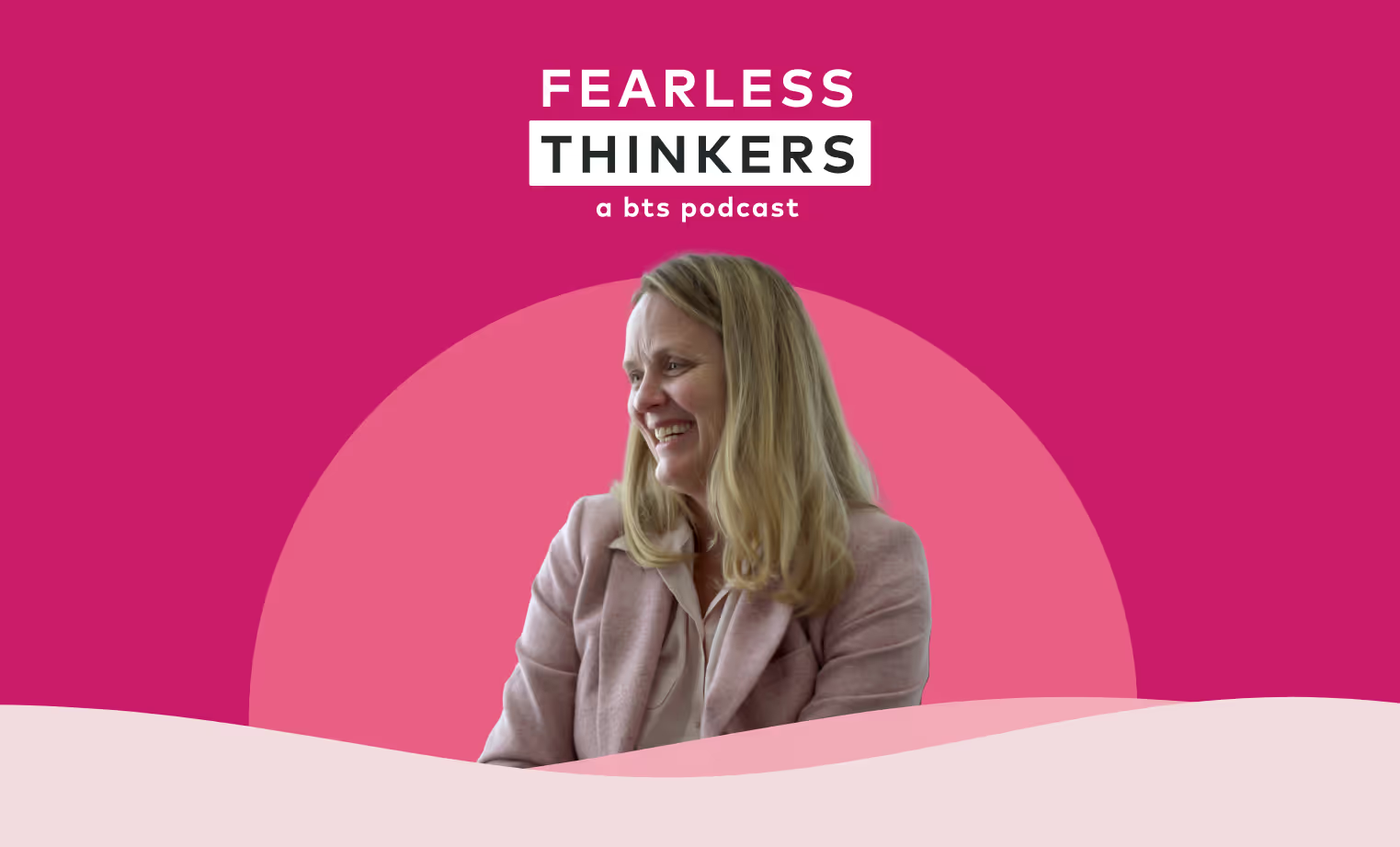
lorem ipsum
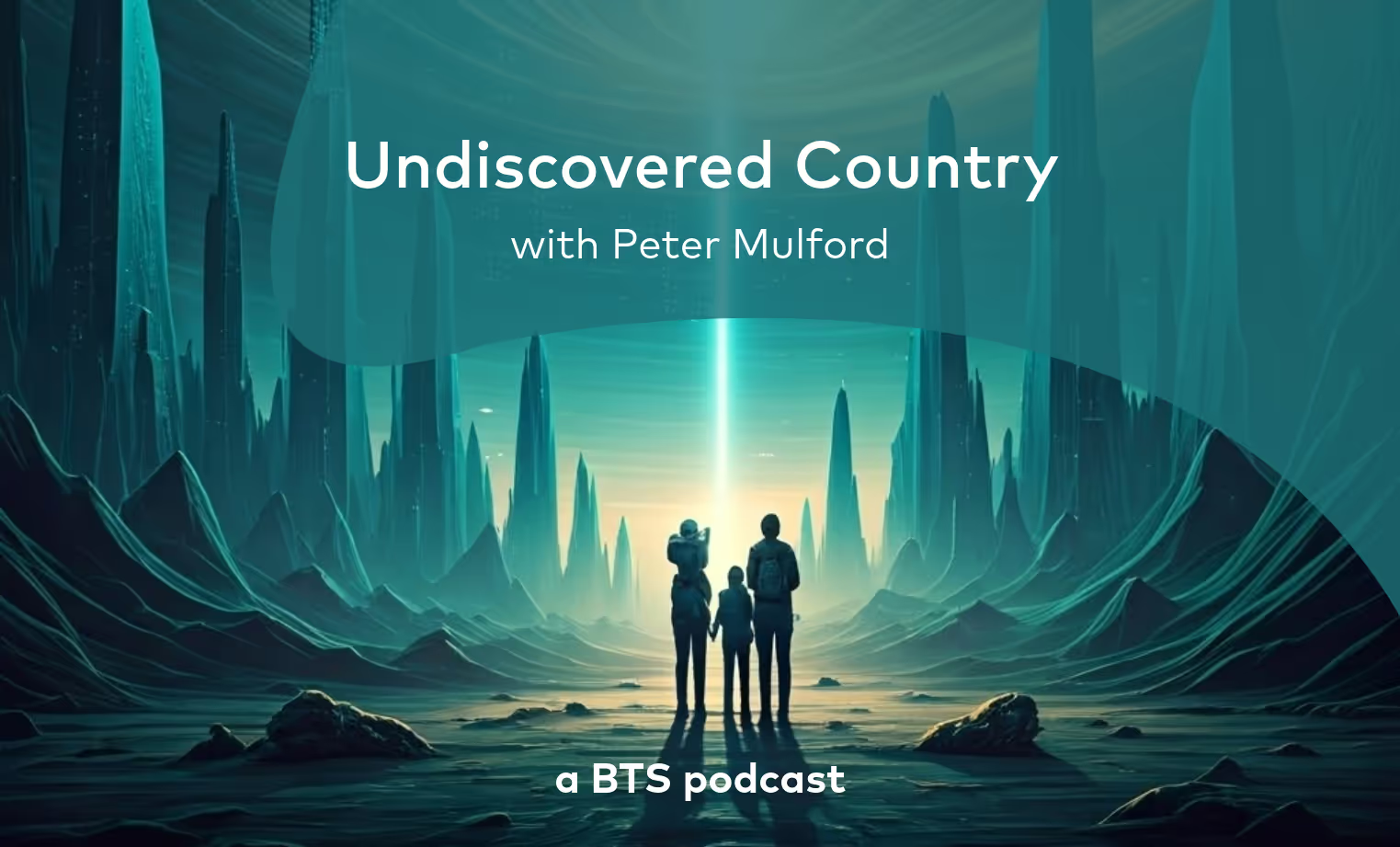
lorem ipsum
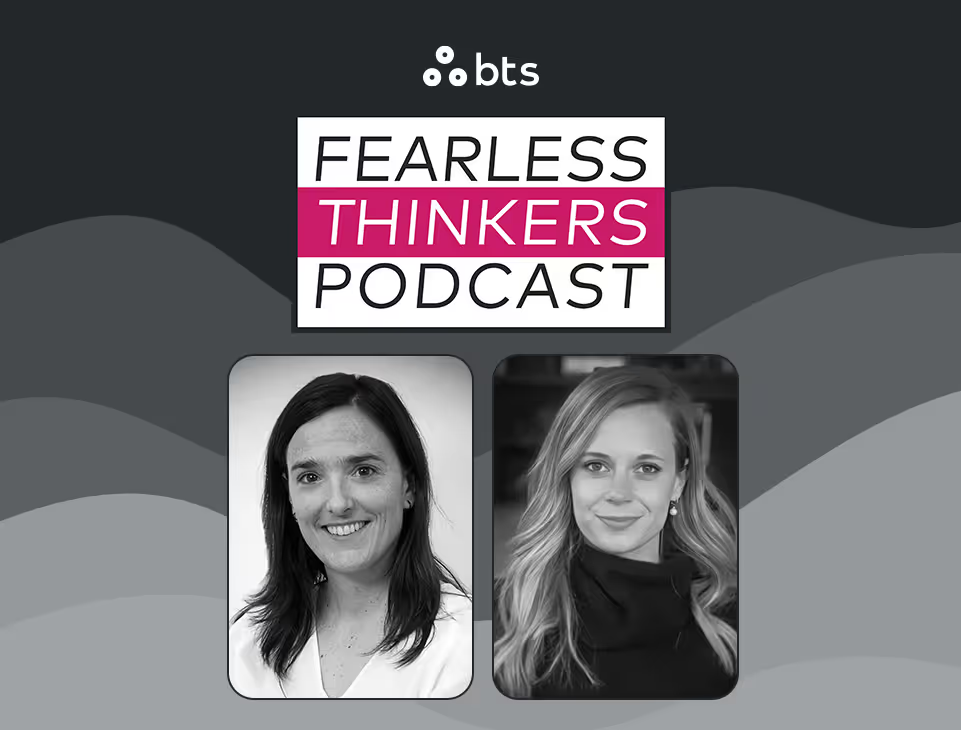
lorem ipsum

lorem ipsum

lorem ipsum

lorem ipsum

Six top CEOs from varying industries discuss the future of leadership in an AI world.
lorem ipsum
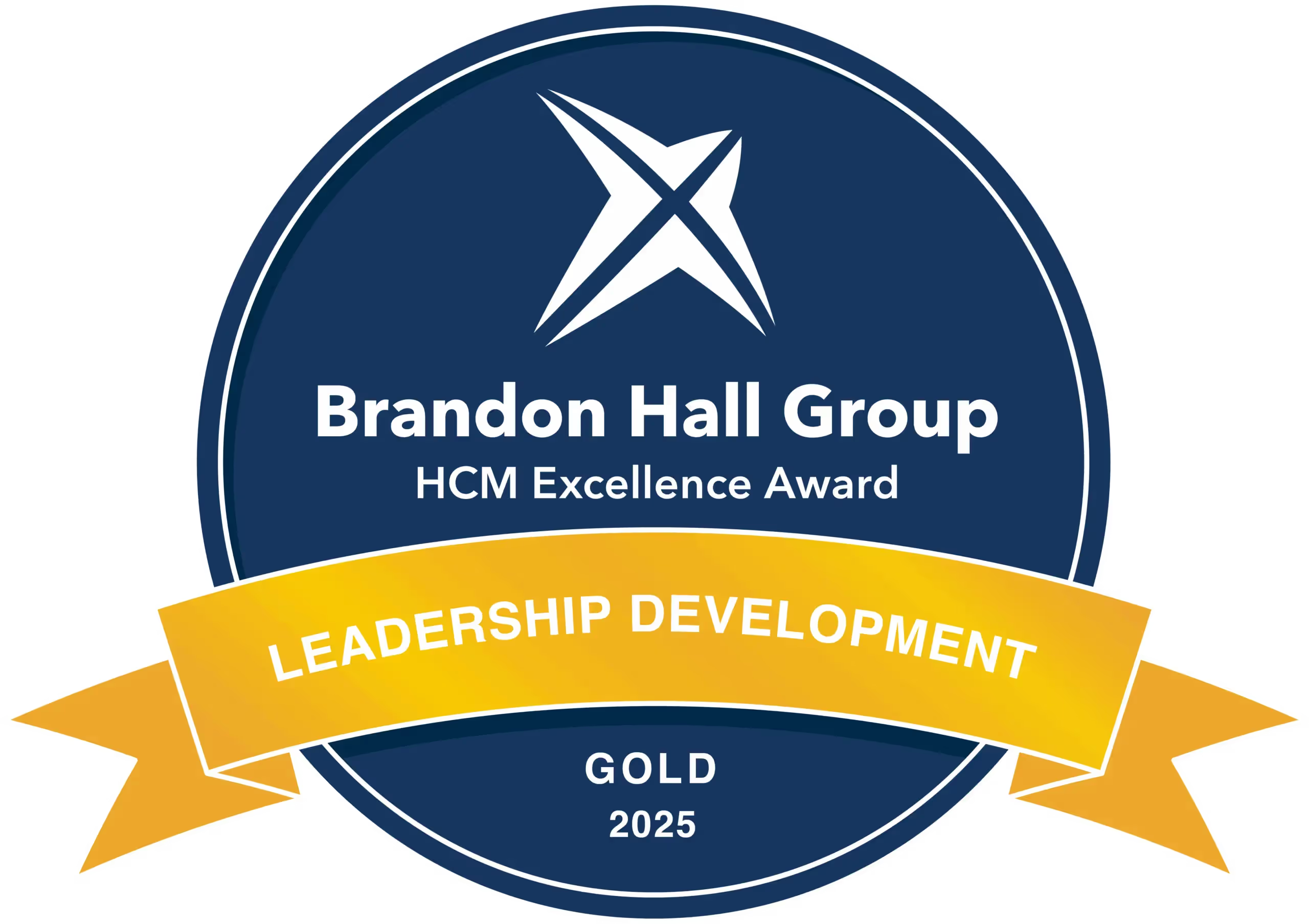
BTS has earned 59 Brandon Hall Group Excellence Awards in 2025 alongside its clients. These awards recognize some of BTS’s most innovative and effective solutions, created through close collaboration with their clients.
lorem ipsum

STOCKHOLM, SWEDEN – BTS Group AB (publ), a leading global consultancy specializing in strategy execution, change, and people development, has agreed to acquire Sounding Board, a technology-based leader in scalable, high-impact coaching solutions driving transformational leadership development.
lorem ipsum

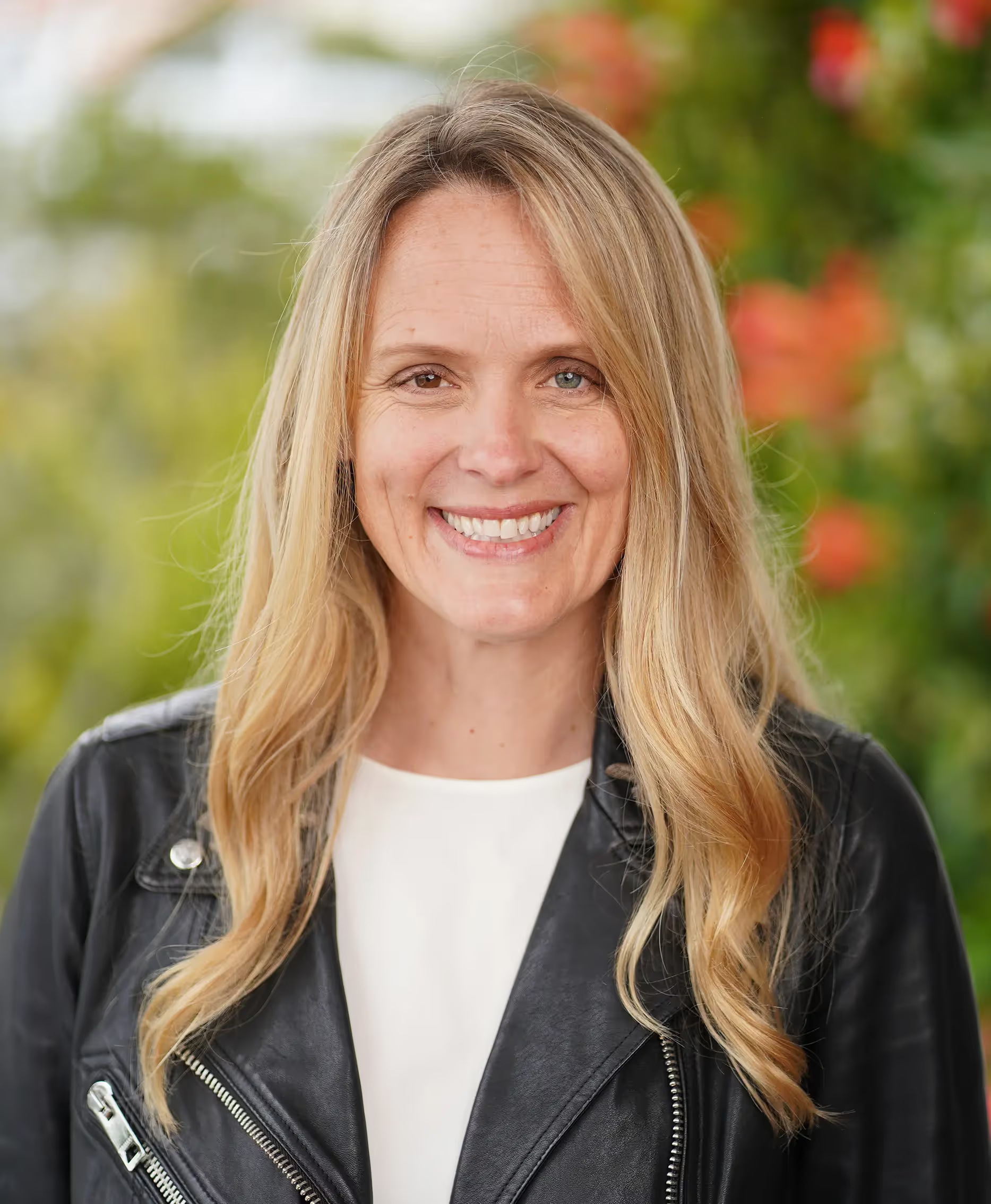
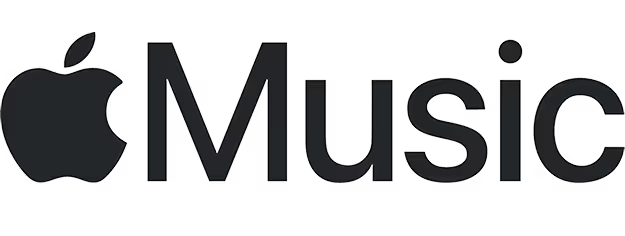

.svg)